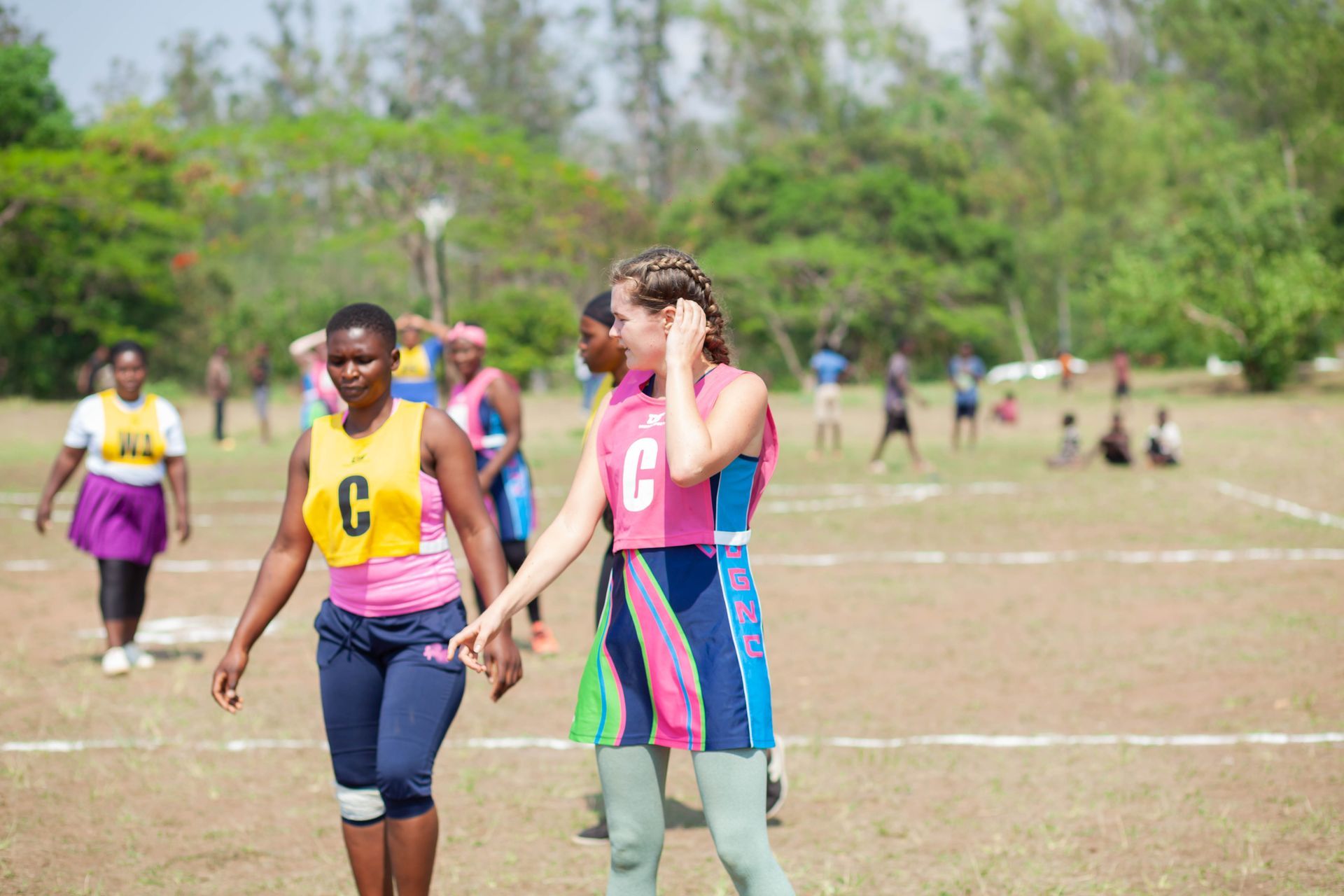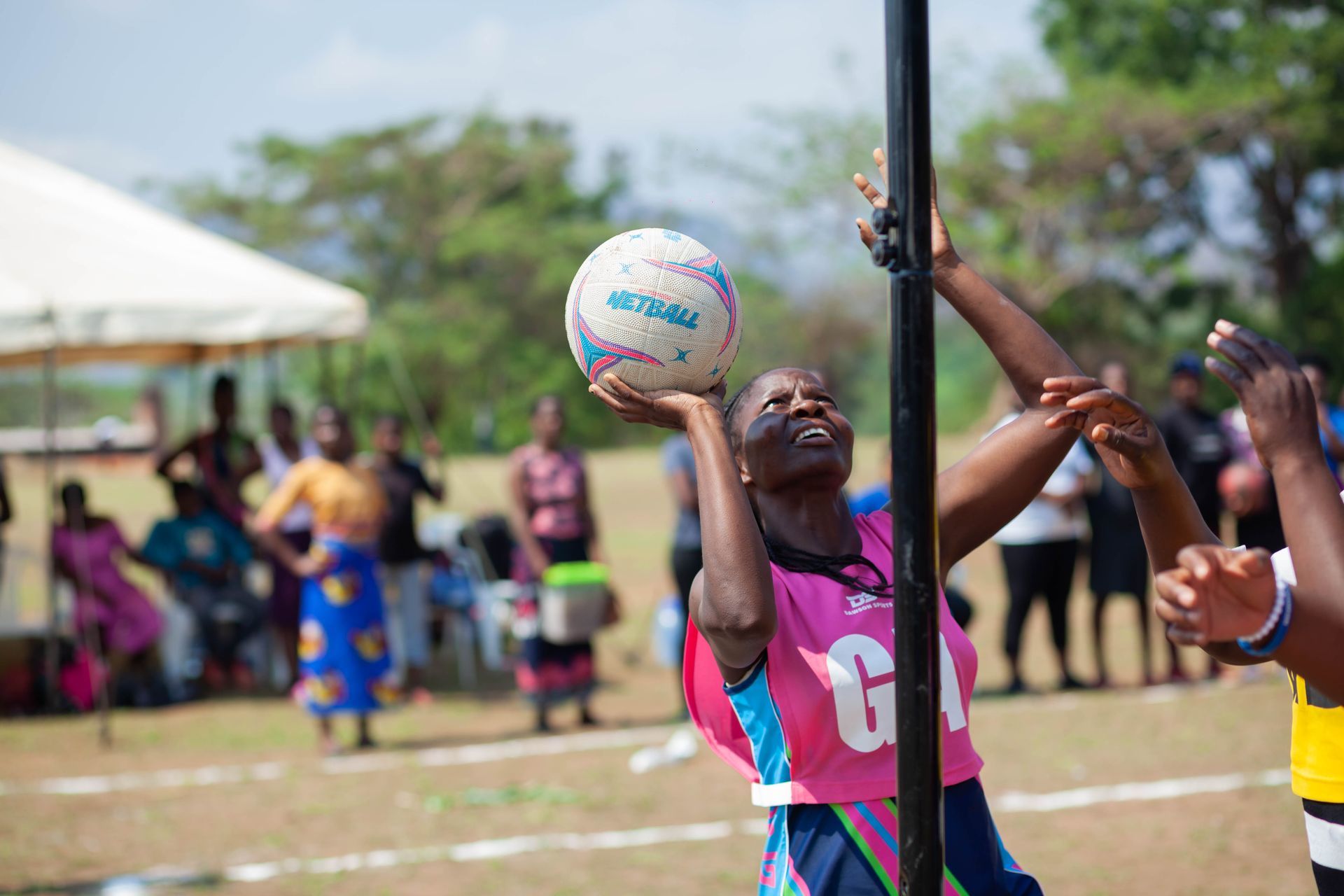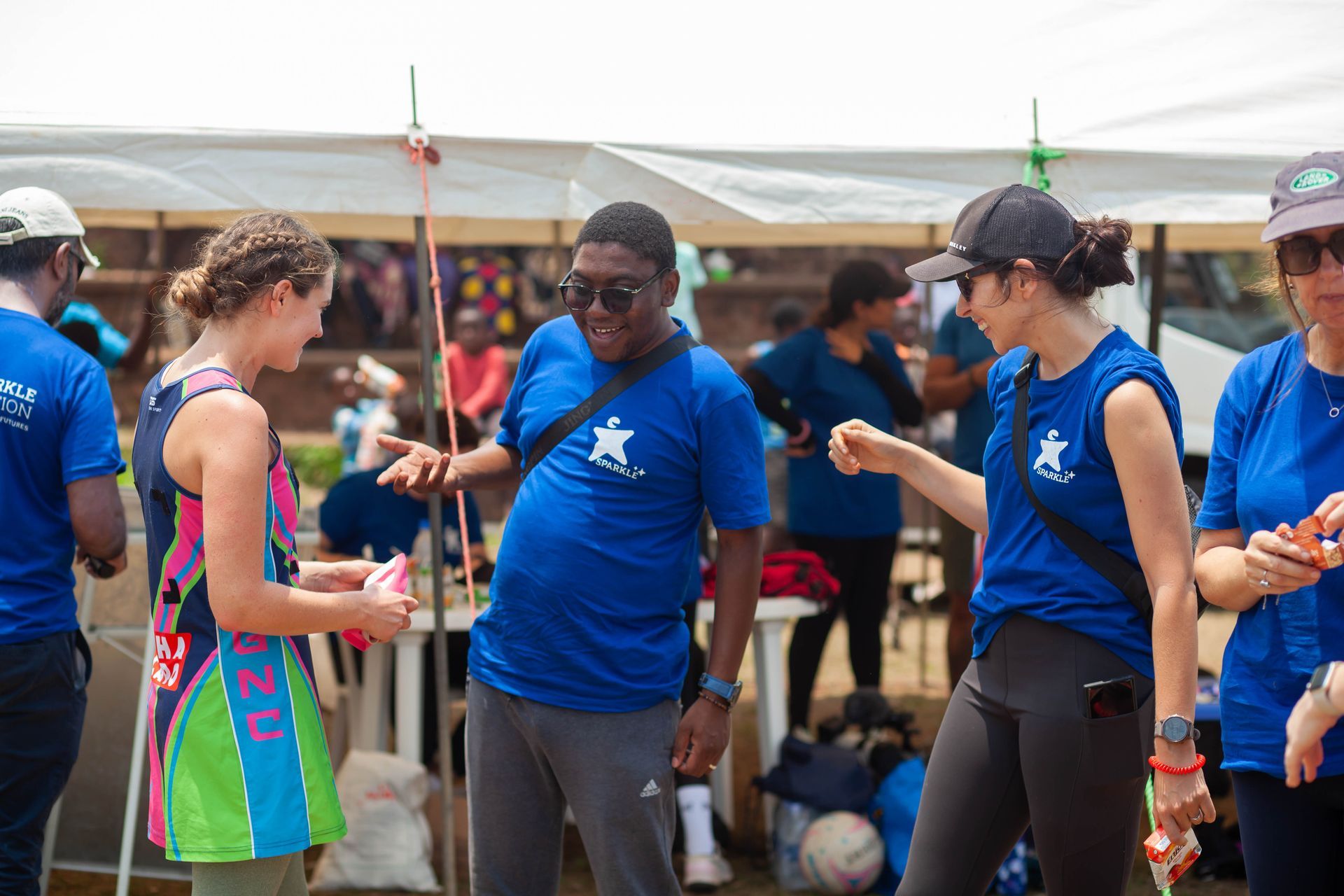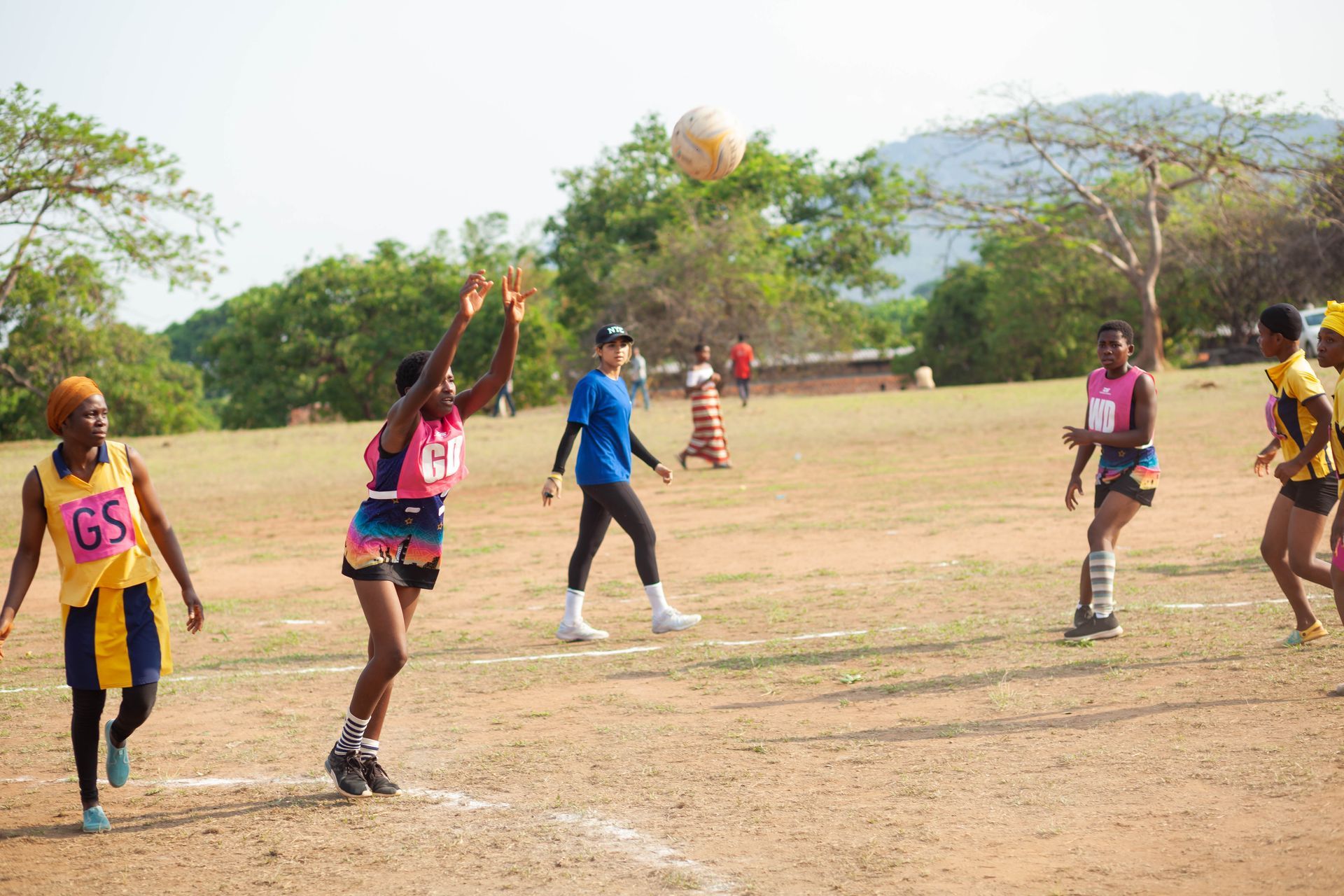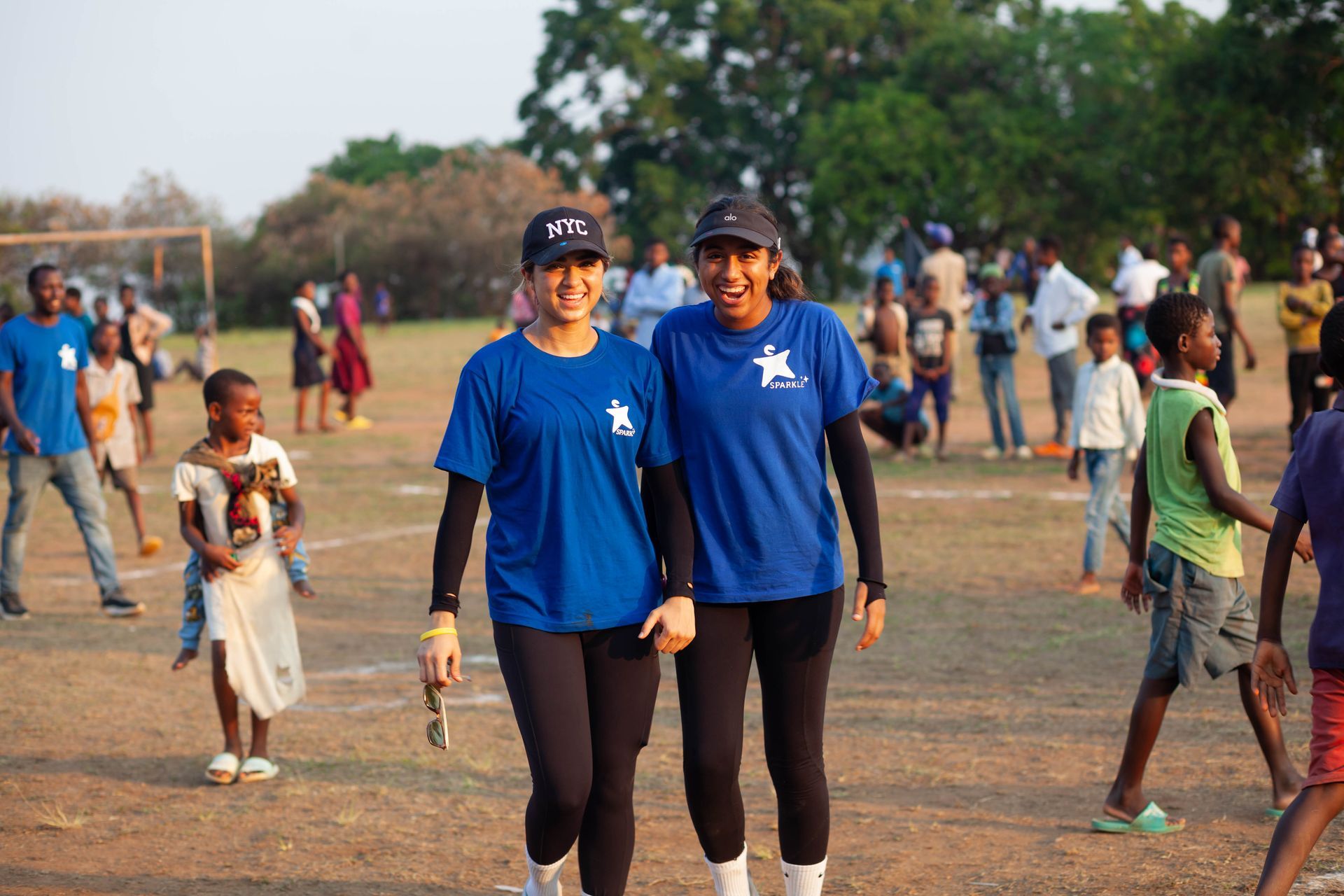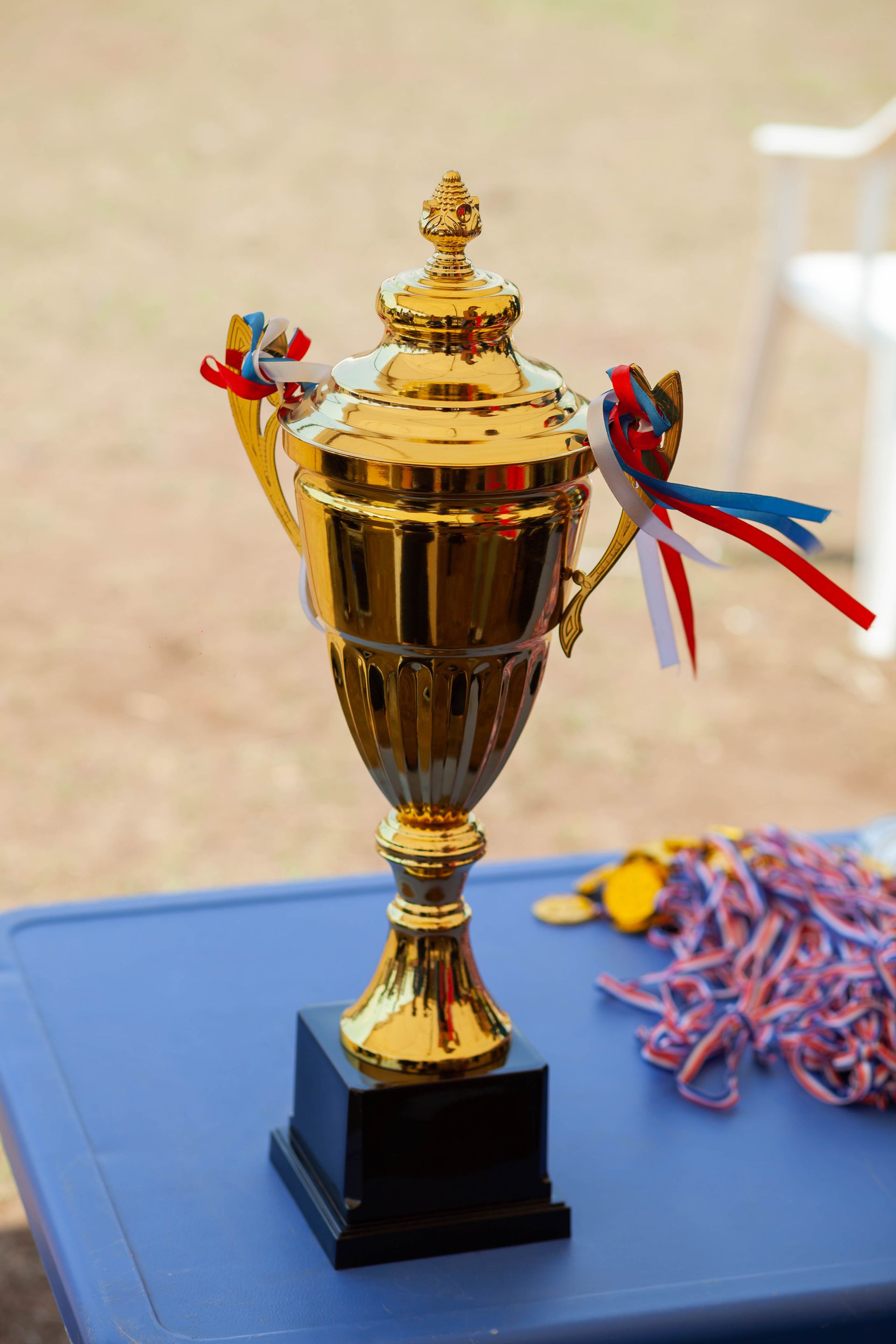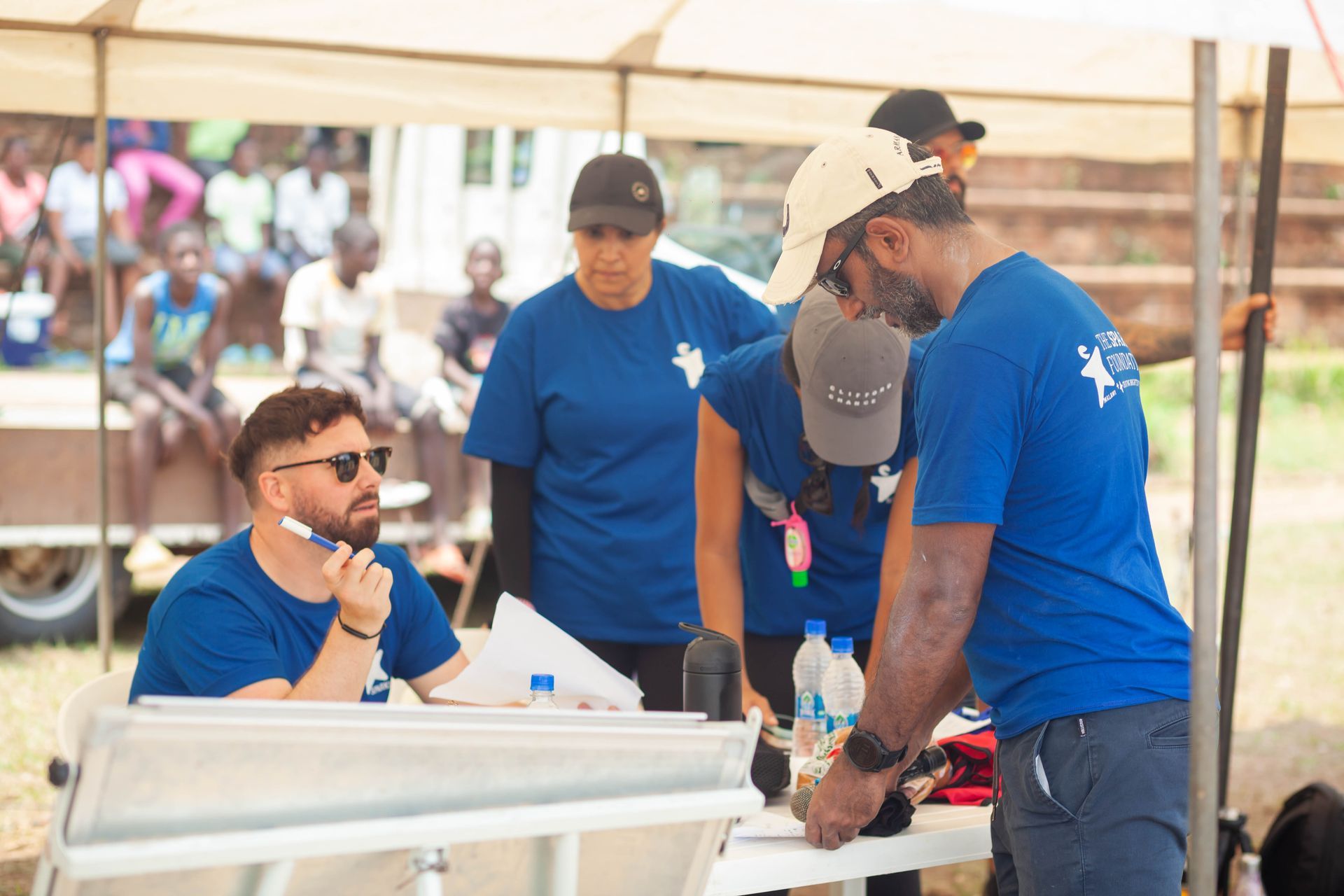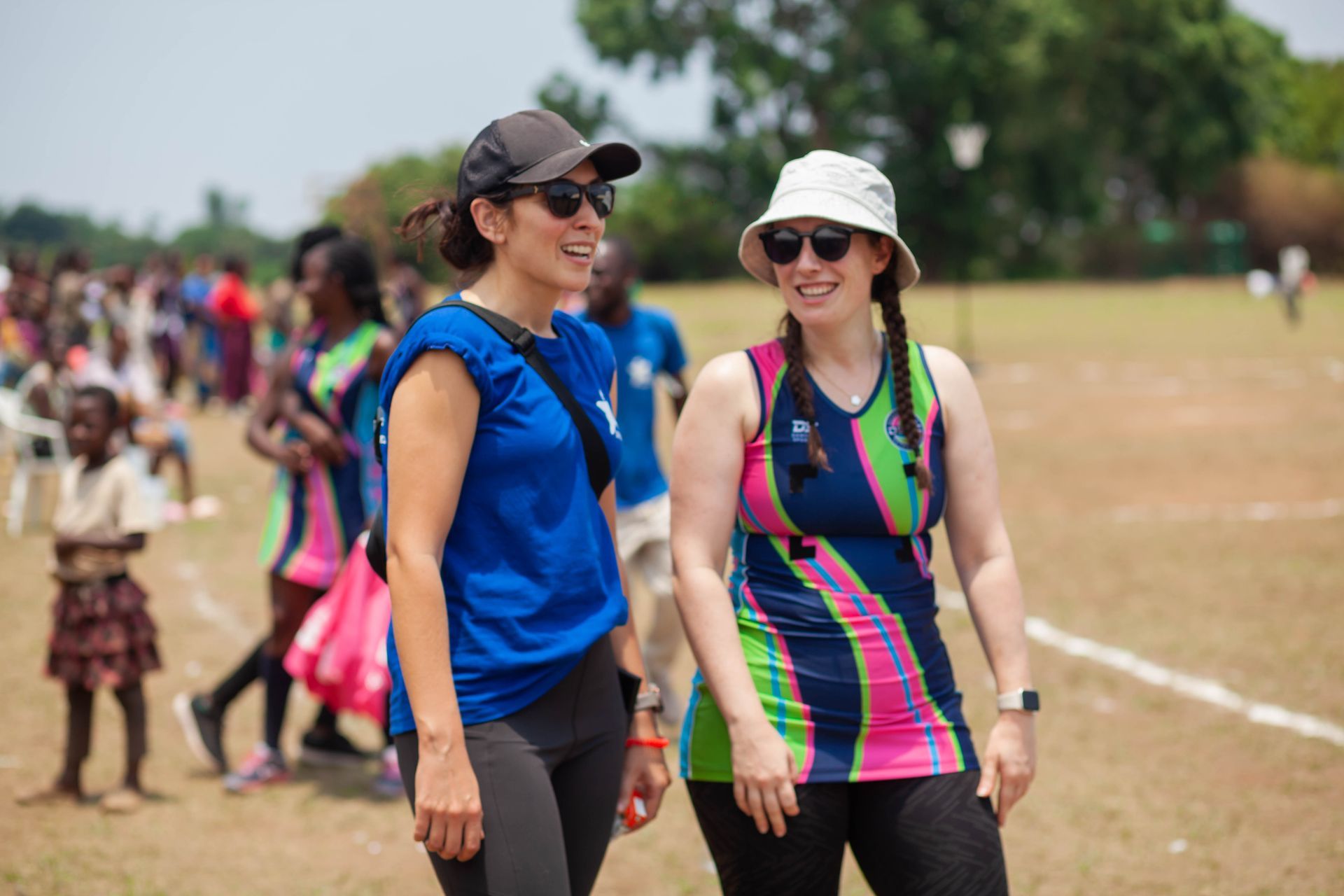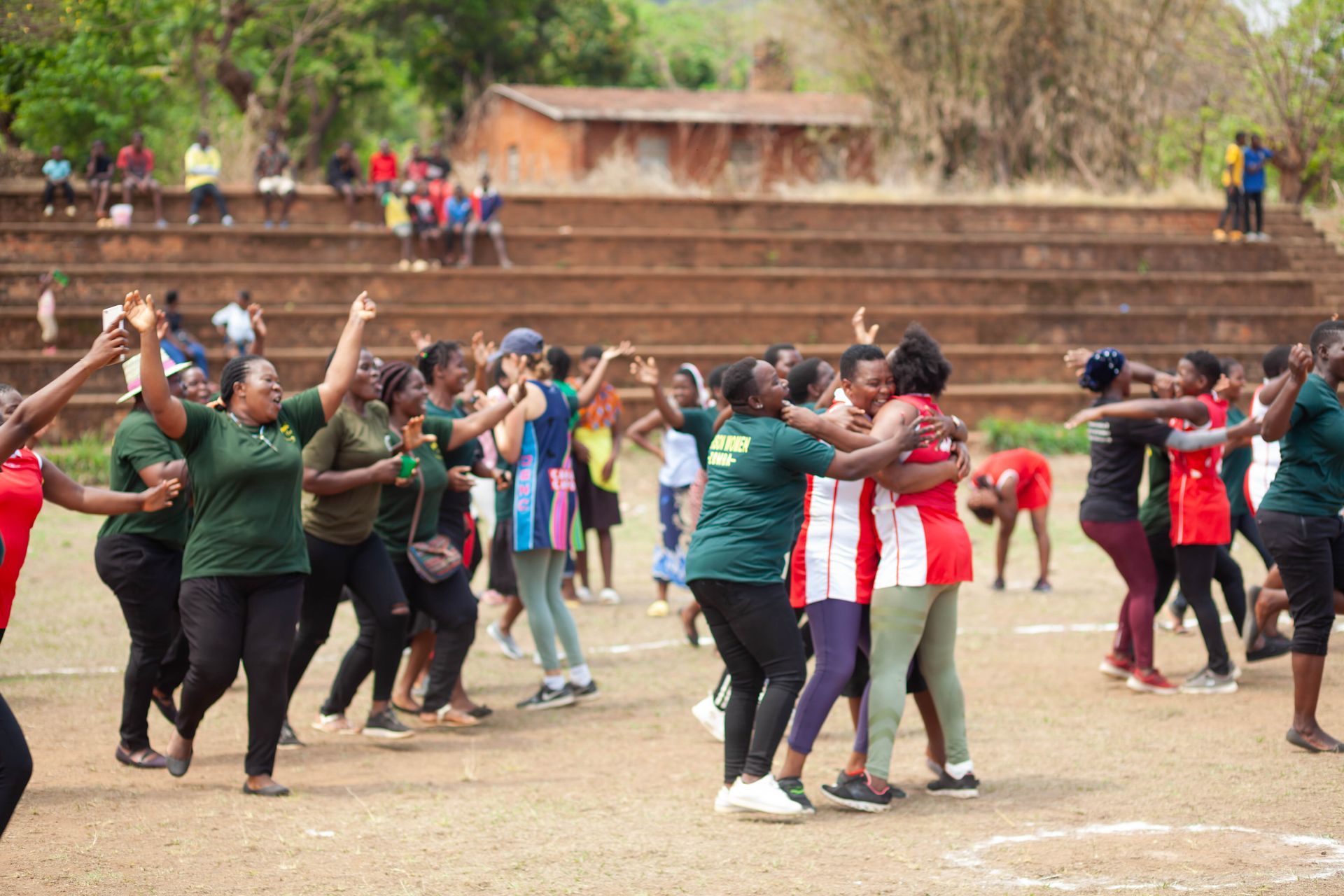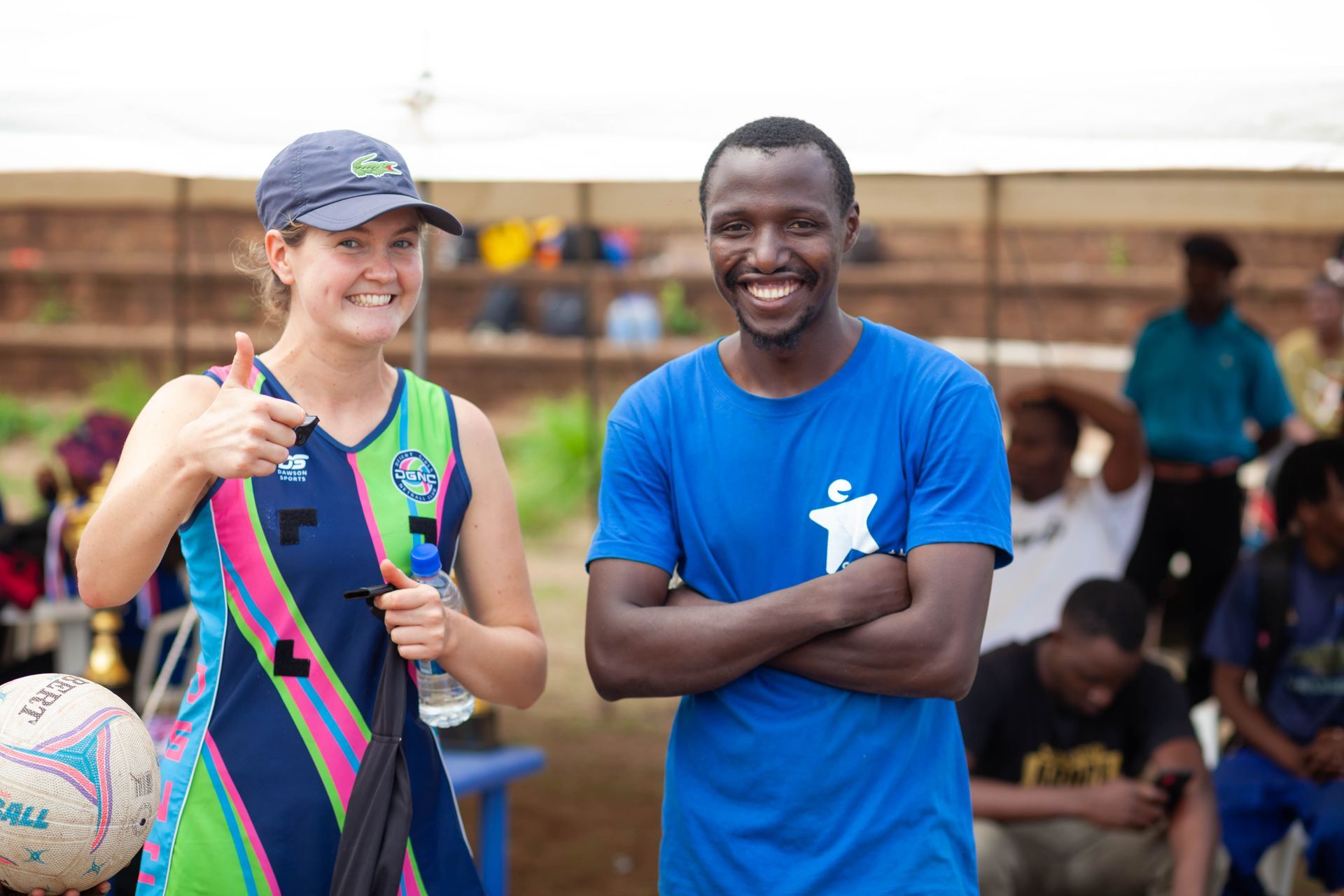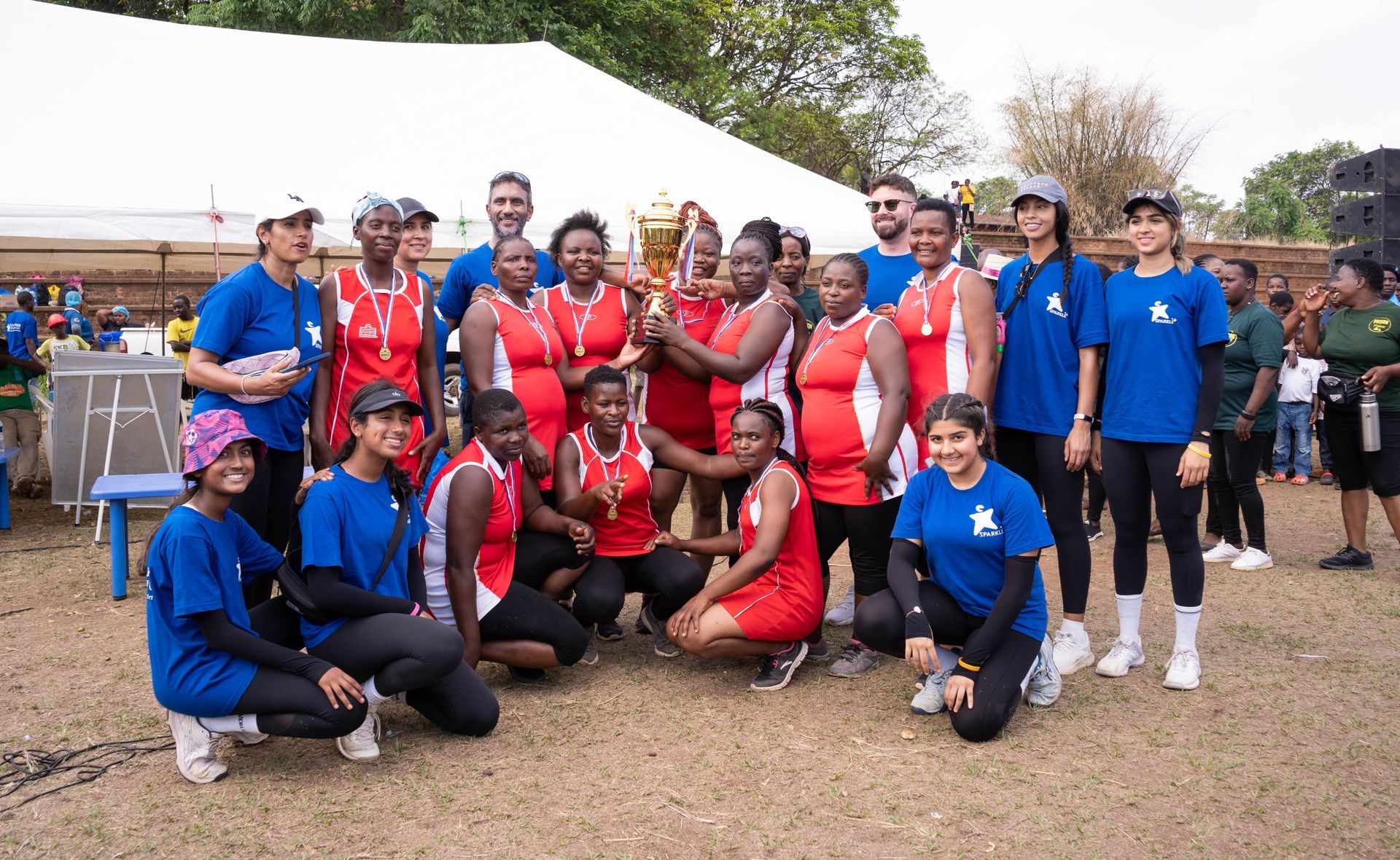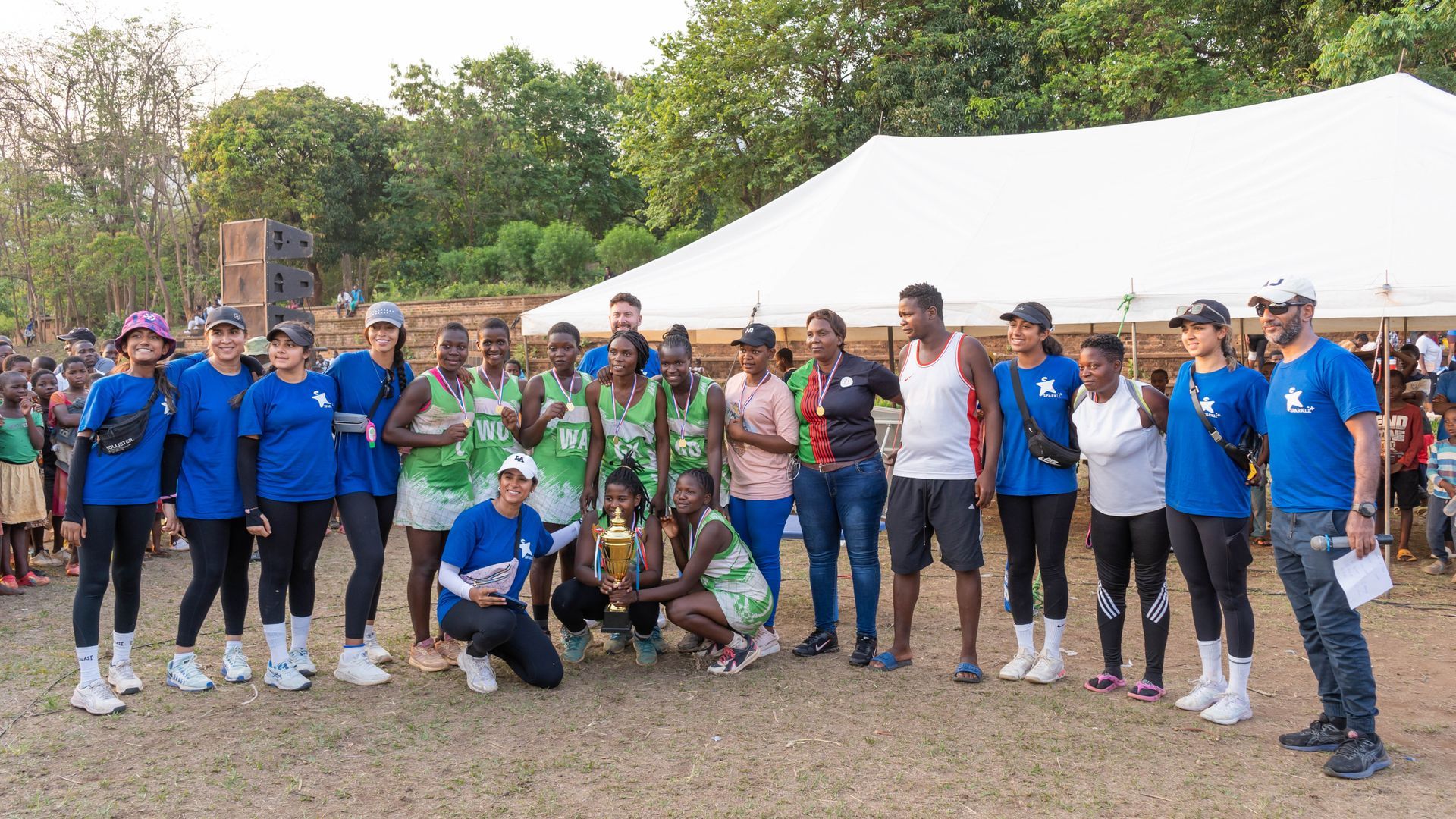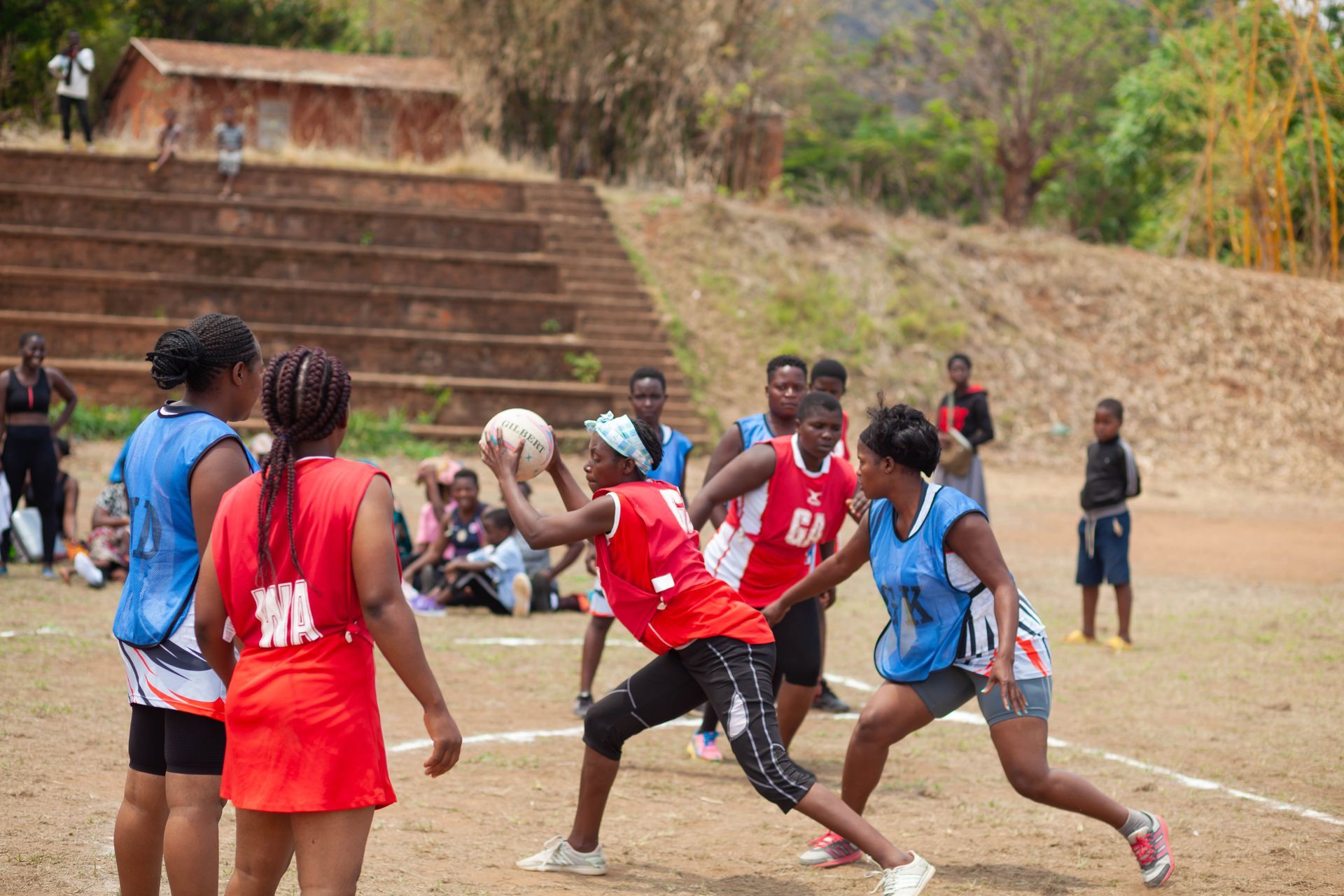Another year, another Sparkle netball tournament: The Sparkle 2023 Netball Tournament by Clifford Chance
The tournament's second edition, in partnership with our wonderful corporate partners, Clifford Chance
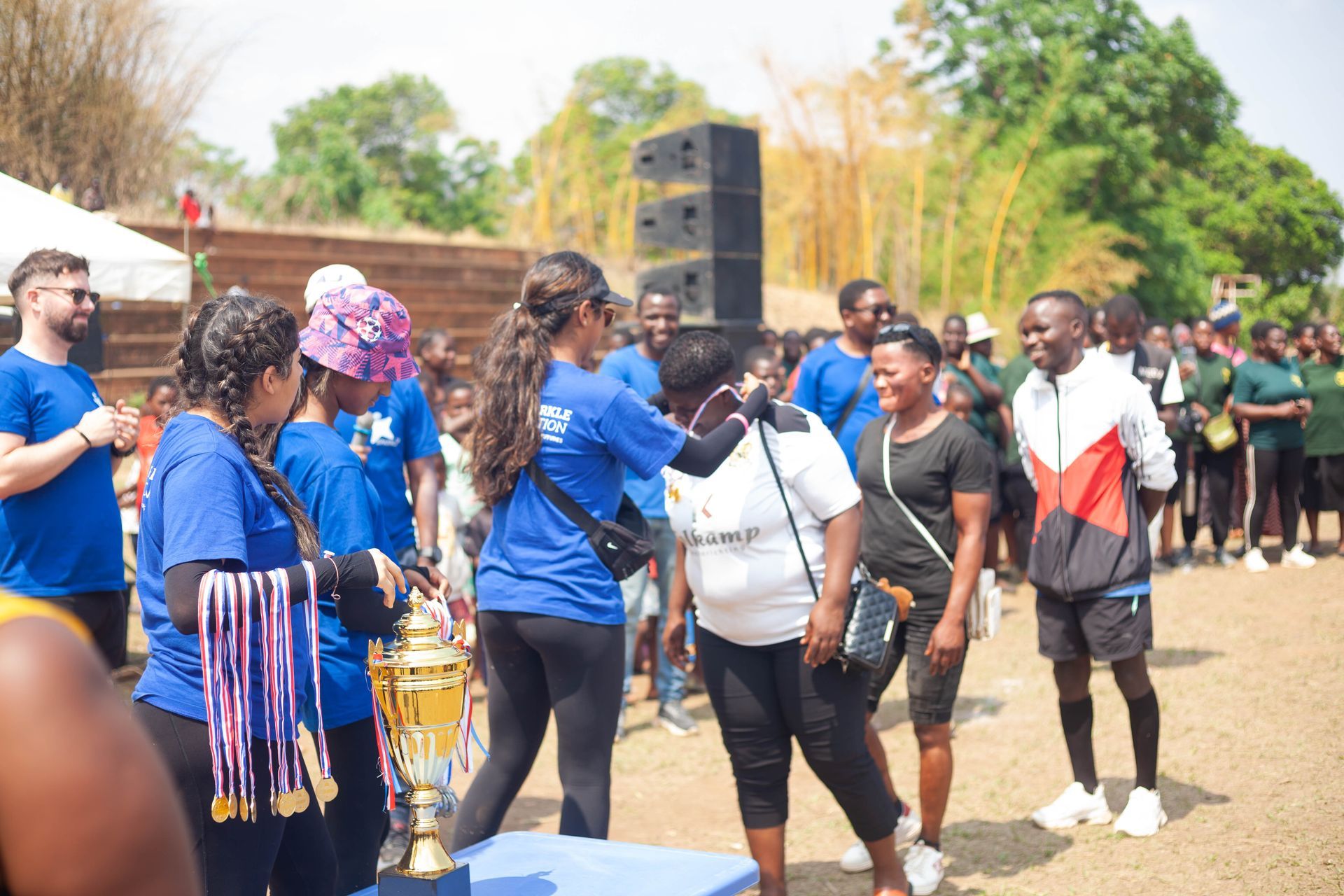
Last weekend, Mulunguzi Secondary School – just minutes away from the Sparkle Site – was full of Zomba’s netball enthusiasts and sports fans for our second ever Sparkle Netball Tournament, in partnership with our corporate partner law firm Clifford Chance. It was an unforgettable day featuring not only one but two exhilarating tournaments, with every match showcasing excellent sportsmanship whilst celebrating women and girls in sport.
Throughout the morning, women’s teams from various backgrounds including local clubs, Police and Prison staff, as well as Sparkle women’s group and staff team, battled it out for the Sparkle Cup. In the end, it was the Prison Staff team that were victorious, displaying remarkable determination and teamwork.
The afternoon saw the youth teams take center stage, and the enthusiasm amongst the girls was palpable. The thrilling final saw our very own Sparkle Youth Team securing second place when they faced Chikanda Queens, who emerged champions of the 2023 Sparkle Netball Tournament.
It was heartwarming to witness all teams and players cheering each other’s success; the atmosphere was electric with vibrant energy and an abundance in celebration and smiles all round.
It was heartwarming to witness all teams and players cheering each other’s success; the atmosphere was electric with vibrant energy and an abundance in celebration and smiles all round.
Capturing the excitement and interviewing players was the local Chanco TV Station, which helped spread awareness across the country about the tournament and The Sparkle Foundation’s work of supporting and empowering children, women, and the overall community in the villages surrounding our two sites in Zomba.
Clifford Chance's continued support to Sparkle was visible not only in their generous donations of shiny medals, trophies, and netball kits to all three of our Sparkle teams, but also through their active participation in the event. We were honored to welcome three Clifford Chance employees to Malawi over the weekend, along with many of their netball-enthusiast family members, all of whom helped to commentate, score, umpire, time keep, and generally contribute to ensuring that the event was the success that it was. We are deeply grateful to Clifford Chance for bringing our communities a day of sportsmanship and smiles.
"I’ve been helping to arrange the tournament in the background from Dubai for a number of months now. It’s great to be here, seeing all of the energy on the court."
- Elise, Clifford Chance volunteer
Watch out on our social media pages to see more photos, videos, and a whole lot of smiles and laughter from the incredible day.







